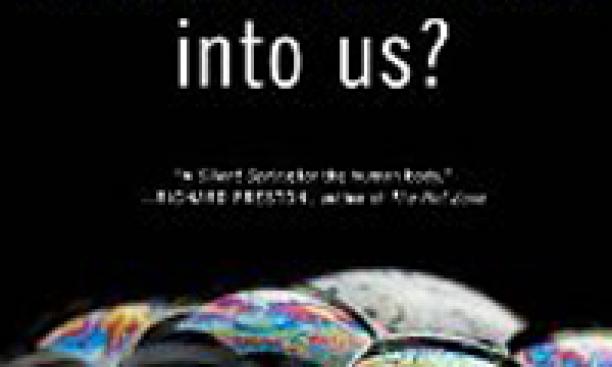

New book: What’s Gotten Into Us? Staying Healthy in a Toxic World, by McKay Jenkins *96 (Random House)
The author: A professor of English and journalism at the University of Delaware, Jenkins wrote The White Death, about five men who died in an avalanche in Glacier National Park in 1969; Bloody Falls of the Coppermine, about two Catholic priests murdered in the Arctic; and The Last Ridge: The Epic Story of the U.S. Army's 10th Mountain Division and the Assault on Hitler's Europe, about an elite unit that specialized in winter and high-altitude combat.
The book: Several years ago, Jenkins went in for a routine check-up and found out that there was a “suspicious mass” in his abdomen. It turned out to be benign, but the scare and questions from hospital researchers about his exposure to toxic chemicals and contaminants in his home and work environment led him to investigate how we have gotten to the point where “we have spent our lives virtually marinating in toxic chemicals.” In What’s Gotten Into Us? Jenkins examines the dangers of the chemicals present in our lives and offers advice on how to reduce our exposure to toxins in everyday products — from ant spray and perfume to dryer sheets and baby shampoo.
From the book: “Every day, the United States produces or imports 42 billion pounds of synthetic chemicals, 90 percent of which are created using oil. Converted to gallons, this volume is the equivalent of 623,000 gasoline tanker trucks, each carrying 8,000 gallons, which, if placed end to end, would reach from San Francisco to Washington, D.C., and back. In the course of a year, this line would circle the earth eighty-six times at the equator. Whether all that stuff ends up getting turned into consumer products, or burned, or buried, it never disappears. It has to end up somewhere. And it does. It ends up in us.”
Reviews: Publishers Weekly called the book a “serious exposé that is surprisingly entertaining and positive.” The New York Times called it a “fine, user-friendly introduction to avoiding environmental hazards in the home, and an even better catalyst to questioning how we got to this point and transcending our unthinking reliance on chemicals.”
